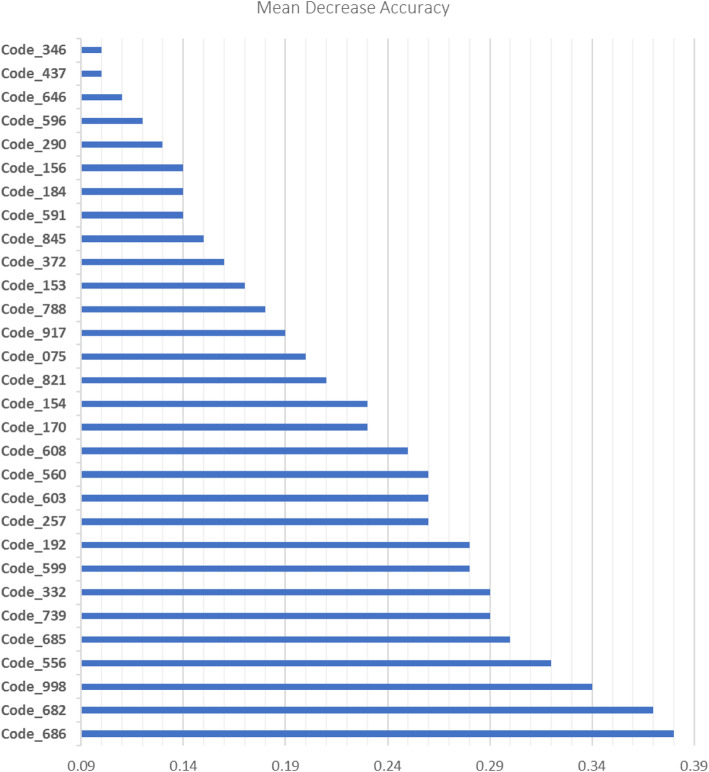Fig. 2.
Description of the top 30 physician diagnostic (ICD-9) codes to identify SSIs. 686 - Pyoderma, pyogenic granuloma, other local skin infections; 682 - Cellulitis, abscess; 998 - Other complications of procedures, not elsewhere classified; 556 - Ulcerative colitis; 685 - Pilonidal cyst or abscess; 739 - Nonallopathic lesions, not elsewhere classified; 332 - Parkinson’s disease; 599 - Other disorders of urethra and urinary tract; 192 - Malignant neoplasm of other and unspecified parts of nervous system; 257 - Testicular dysfunction; 603 – Hydrocele; 560 - Intestinal obstruction without mention of hernia; 608 - Other disorders of male genital organs; 170 - Malignant neoplasm of bone and articular cartilage; 154 - Malignant neoplasm of rectum, rectosigmoid junction and anus; 821 - Fracture of femur; 075- Infectious mononucleosis, glandular fever; 917- Superficial injury of foot and toe(s); 788 - Symptoms involving urinary system; 153 – Malignant neoplasm of large intestine - excluding rectum; 372 - Conjunctiva disorders (e.g., conjunctivitis, pterygium); 845 – Sprains and strains of ankle and foot; 591 – Hydronephrosis; 184 - Malignant neoplasm of vagina, vulva, other female genital organs; 156 - Malignant neoplasm of gallbladder and extra hepatic bile ducts; 290 - Senile dementia, presenile dementia; 569- Other disorders of intestine; 646 - Other complications of pregnancy (e.g., vulvitis, vaginitis, cervicitis, pyelitis, cystitis); 437- Other and ill-defined cerebrovascular disease; 346 - Other diseases of central nervous system (e.g., brain abscess, narcolepsy, motor neuron disease, syringomyelia)

